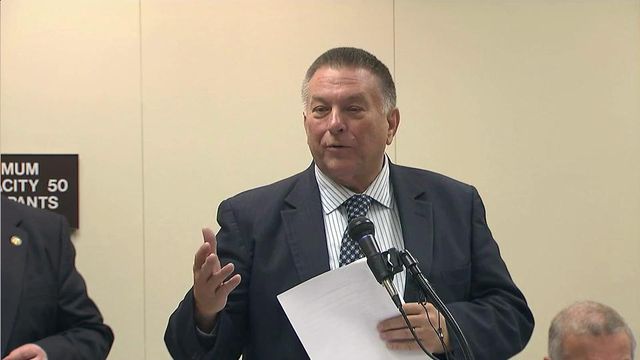Lottery foes seek clarity - again
House critics of the state's lottery are trying again to clarify the lottery's rules for advertising and growth.
Posted — UpdatedIf it seems like you've heard this one before, you're right. Rep. Skip Stam, R-Wake, has been trying for years to make changes to the game's operations. But this year, he says, he's scaling back his efforts to a bill that lottery officials won't oppose.
Stam told the House Judiciary 2 Committee that this year's bill, House Bill 109 "Lottery Act Clarified," is only "a shadow" of 2013's "Honest Lottery Act," which passed the House by an overwhelming margin but elicited no interest from Senate leaders.
“This was intended to sail through like...a greased pig," he said. "In my old age, I’ve decided to not beat my head against the Senate wall too often. It gives me headaches."
One part of the bill requires lottery ads that tout the odds of winning a prize to clarify the odds of winning the largest prize. Stam said ads often promote the big prize up front, "and then there’s a lot of vapid nonsense, and at the end, it’ll say, 'One in three chances of winning.' Well, that one-in-three chance is maybe of winning another ticket. It’s not the big prize."
The legislation also forbids the State Lottery Commission from venturing into new types of games without the permission of the legislature. Under current law, the commission could add any type of new game that any other state lottery is using.
"Essentially, you're outsourcing your policy to the craziest state in the nation," Stam said, adding that "there are a lot of games that are much more addictive psychologically" than the scratch-offs and drawings currently in use in North Carolina.
Asked for an example, he responded, "Modern video poker is designed to take all of your money."
The bill also prohibits lottery advertising at high school events, requires lottery materials to use the word "gambling" instead of "gaming" and stops the game's practice of advertising that it's overseen by a certified public accountant.
"Advertising that you’re using a CPA tells some kind of people that this is on the up-and-up," Stam said. "That’s not what the CPA is checking for at all. The CPA is just checking that the machine is working right and pops the balls out equally or whatever."
Lottery spokeswoman Jaime King Fuquay said the lottery doesn't advertise at high school events and requires state agencies that receive lottery funds to disclose that fact to the public.
Co-sponsor Rep. Rick Glazier, D-Cumberland, said the lottery commission itself does a good job of telling people where the money goes.
“But the agencies that get (money) don’t, and that creates an awful lot of public questions to all of us about where’s the lottery money going," Glazier said.
Fuquay said the lottery fully supports that provision. She said many school districts aren't aware that about half the game's proceeds go to teacher salaries, and that the lottery also pays for about half the available slots in the state's Pre-K program.
Stam agreed, saying the "designation" of lottery funds to education discourages people from supporting other needed funding for schools, such as bonds, even though lottery proceeds actually make up only 4 percent of the education budget.
"Most people think that 4 percent is mainly what’s supporting the schools,” Stam said. "They say, 'The lottery is taking care of it.' It’s a mirage, a delusion.”
Rep. Susan Conrad, R-Wilson, asked how the changes in the bill would affect lottery proceeds.
"I’m not a big lottery supporter, but we have become dependent on a certain amount of revenue," Conrad said.
Stam said the measure is not expected to have any effect on the lottery's bottom line.
The bill is expected to receive a vote in the House Judiciary 2 Committee next week.
Related Topics
• Credits
Copyright 2024 by Capitol Broadcasting Company. All rights reserved. This material may not be published, broadcast, rewritten or redistributed.






